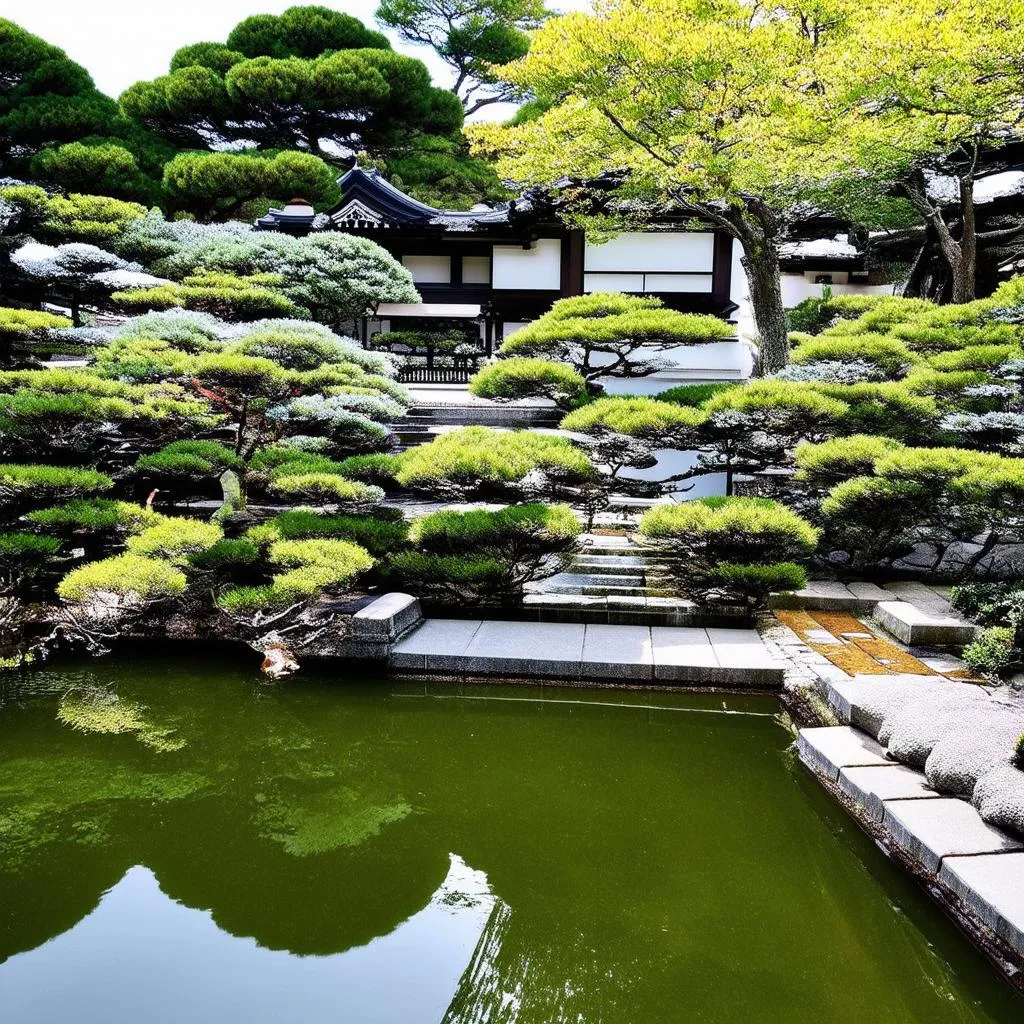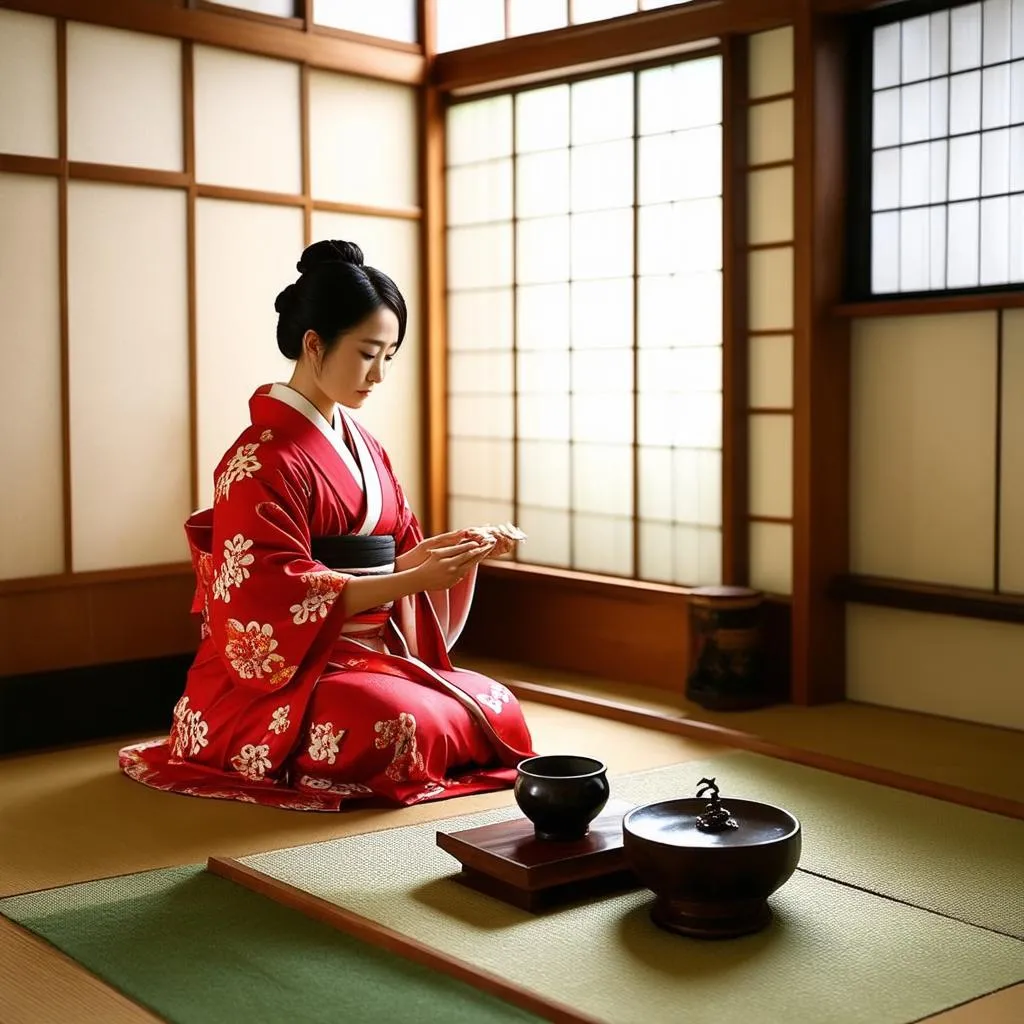Have you ever dreamt of wandering through the enchanting bamboo forests of Arashiyama, losing yourself in the vibrant energy of Shibuya Crossing, or finding zen at the serene Kinkaku-ji Temple? Learning a few basic Japanese travel phrases can transform your trip from a simple sightseeing tour to an immersive cultural experience.
While English is spoken in some tourist areas, venturing off the beaten path and engaging with locals in their native tongue will unlock a whole new level of adventure. As seasoned travel expert, Kenji Tanaka, puts it in his book, “Beyond the Guidebook: Finding the Soul of Japan,” “The true beauty of Japan lies not just in its sights, but in the heart of its people.”
This guide provides you with essential Japanese travel phrases and practical tips to help you navigate like a local and build meaningful connections on your journey.
Essential Japanese Phrases for Every Traveler
Let’s start with the basics. These phrases will serve as your foundation for communication:
Greetings and Basic Etiquette
- Hello: Konnichiwa (こんにちは)
- Good morning: Ohayo gozaimasu (おはようございます)
- Good evening: Konbanwa (こんばんは)
- Thank you: Arigato gozaimasu (ありがとうございます)
- You’re welcome: Do itashimashite (どういたしまして)
- Excuse me: Sumimasen (すみません) – Use this to get attention, apologize, or say “thank you” when someone moves out of your way.
- I’m sorry: Gomen nasai (ごめんなさい)
- Goodbye: Sayonara (さようなら) – Use this when you don’t expect to see the person again that day.
- See you later: Ja mata (じゃ また) – Use this when you expect to see the person again soon.
Getting Around
- Where is the…?: … wa doko desu ka? (…はどこですか) – For example, “Where is the train station?” would be “Eki wa doko desu ka?” (駅はどこですか).
- How do I get to…?: …e wa do ikimasu ka? (…へはどう行きますか?)
- I want to go to…: …ni ikitai desu (…に行きたいです).
- Train: Densha (電車)
- Bus: Basu (バス)
- Taxi: Takushi (タクシー)
- Subway: Chikatetsu (地下鉄)
- Ticket: Kippu (切符)
Dining and Shopping
- I want this: Kore kudasai (これ ください)
- How much is this?: Kore wa ikura desu ka? (これはいくらですか?)
- Water: Mizu (水)
- Tea: Ocha (お茶)
- Beer: Biiru (ビール)
- Delicious!: Oishii! (おいしい!)
- Check, please: Okaikei kudasai (お会計ください)
 Tranquil Japanese Garden
Tranquil Japanese Garden
Going Beyond the Basics: Useful Phrases for Specific Situations
Asking for Help
- Do you speak English?: Eigo o hanasemasu ka? (英語を話せますか?)
- I don’t understand: Wakarimasen (分かりません)
- Can you help me?: Tetsudatte kuremasu ka? (手伝ってくれますか?)
Expressing Interest
- Beautiful: Kirei desu ne (きれいですね)
- Amazing!: Sugoi! (すごい!)
- Interesting: Omoshiroi desu ne (おもしろいですね)
Navigating Cultural Nuances
Japan has specific cultural customs. Here are a few to keep in mind:
- Bowing: Bowing is the customary way to greet people in Japan.
- Shoes: Remove your shoes before entering homes, temples, and some traditional restaurants.
- Chopsticks: Avoid sticking your chopsticks upright in your rice, as this is considered bad luck.
Incorporating Feng Shui into Your Japanese Travels
Feng shui, the ancient Chinese practice of harmonizing individuals with their surrounding environment, can add another dimension to your Japanese adventure. Many believe that visiting places with good feng shui can bring good fortune and positive energy.
Visit Gardens: Japanese gardens, like the zen garden at Ryoan-ji Temple in Kyoto, are designed with feng shui principles in mind. Spending time in these tranquil spaces can promote peace and balance.
Choose Accommodations Wisely: Consider staying in a ryokan, a traditional Japanese inn, often built with natural materials and designed to create a harmonious flow of energy.
 Traditional Japanese Tea Ceremony
Traditional Japanese Tea Ceremony
Planning Your Trip
Best Time to Visit: Spring (March-May) and autumn (September-November) offer pleasant weather and stunning natural beauty. Spring is famous for cherry blossoms (sakura), while autumn boasts vibrant foliage (koyo).
Visa Requirements: Check the visa requirements for your nationality before you travel.
Currency: The currency in Japan is the Japanese Yen (JPY).
FAQs About Traveling in Japan
Q: Is it expensive to travel in Japan?
A: Japan can be expensive, but there are ways to travel affordably. Consider staying in hostels, eating at less expensive restaurants, and taking advantage of Japan Rail Pass if you plan to do a lot of traveling.
Q: Do I need to tip in Japan?
A: Tipping is not customary in Japan.
Q: What are some must-visit destinations in Japan?
A: This depends on your interests, but some popular destinations include:
- Tokyo: The vibrant capital city with a mix of modern and traditional attractions.
- Kyoto: The ancient capital known for its temples, gardens, and geishas.
- Hakone: A mountain resort town famous for its hot springs and views of Mount Fuji.
- Hiroshima: A historically significant city known for its Peace Memorial Park.
- Nara: Home to Todai-ji Temple, which houses a giant bronze Buddha statue.
For more in-depth information on specific destinations, be sure to visit our website travelcar.edu.vn.
Conclusion
Stepping into a new culture is always an adventure, and learning basic Japanese travel phrases can greatly enhance your experience. Embrace the challenge, be open to new experiences, and let the spirit of Japan captivate you. Remember, every interaction is an opportunity to learn, connect, and create lasting memories. Happy travels!